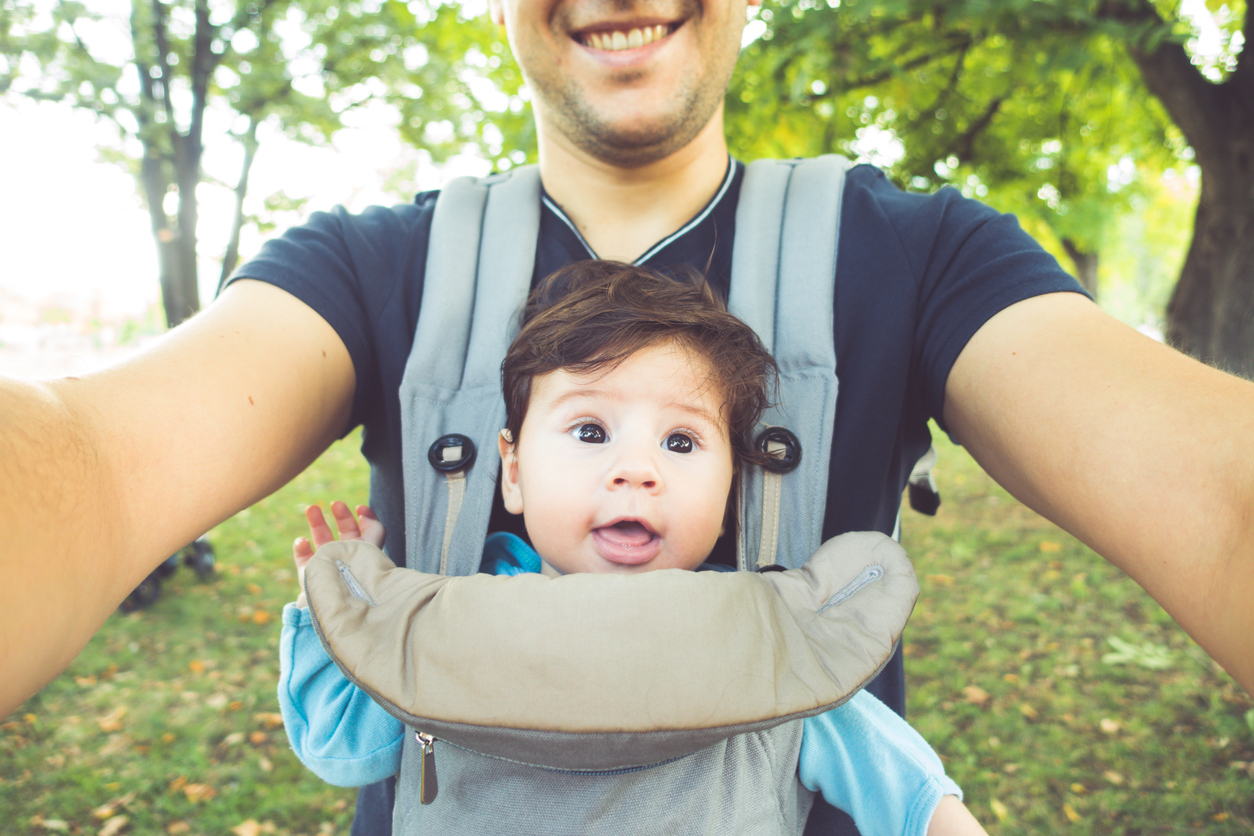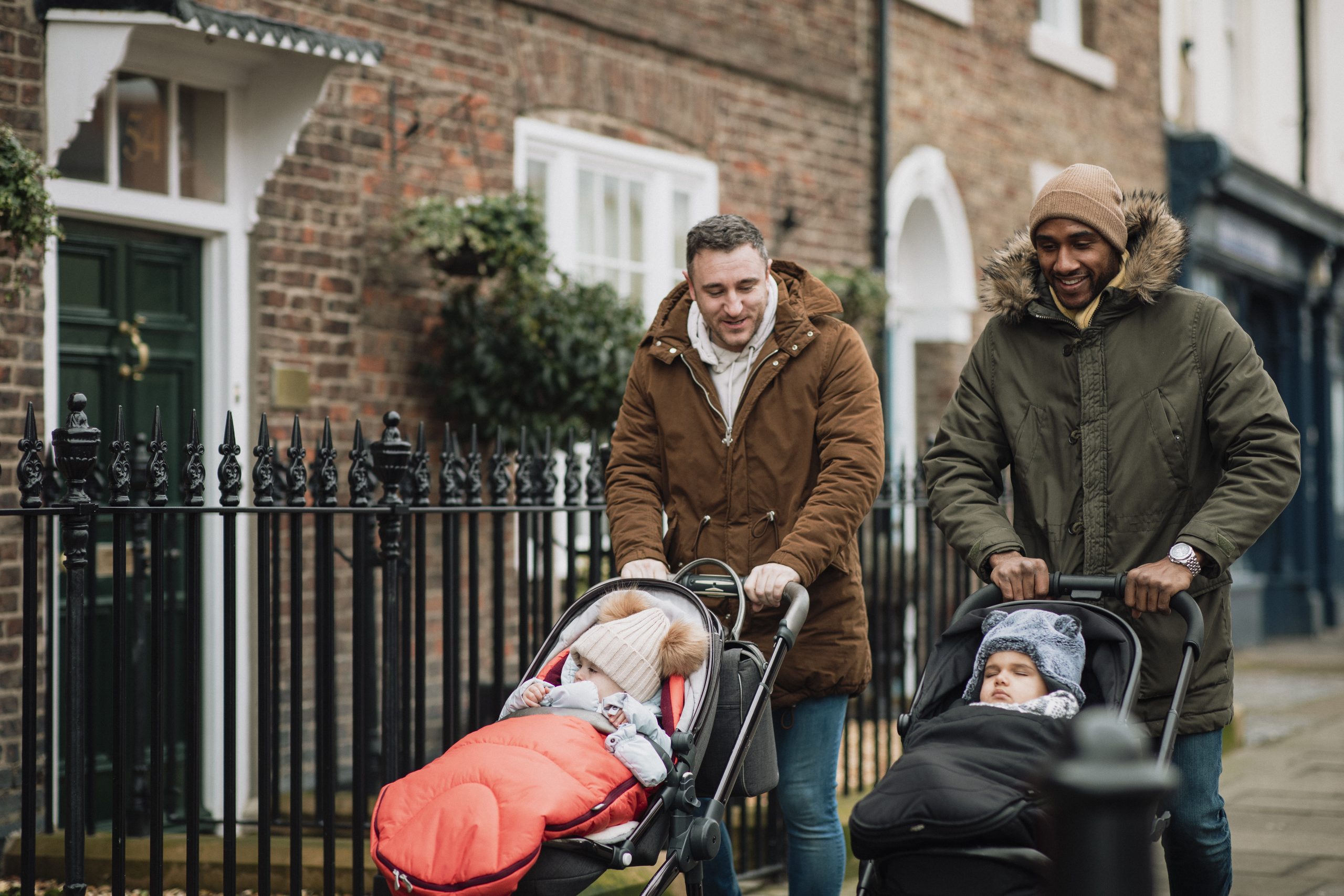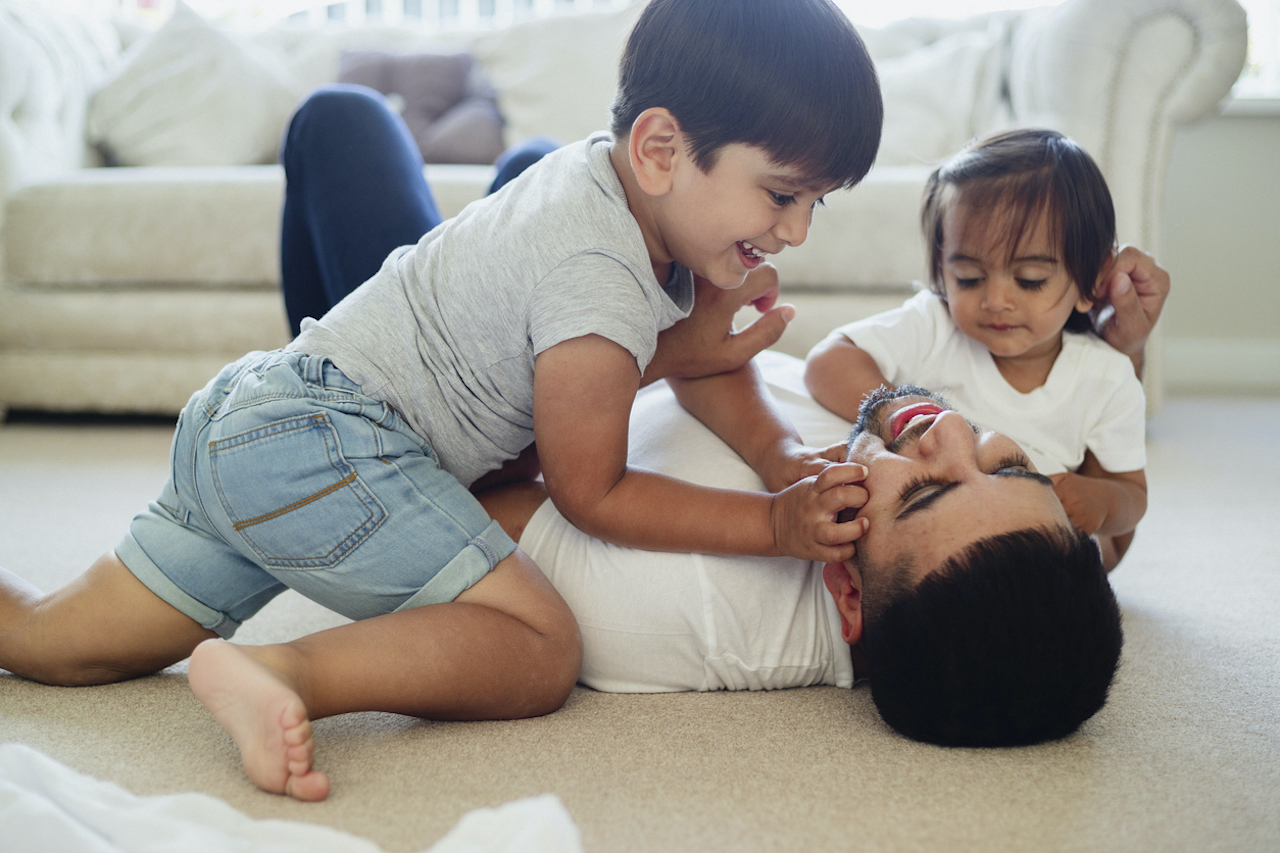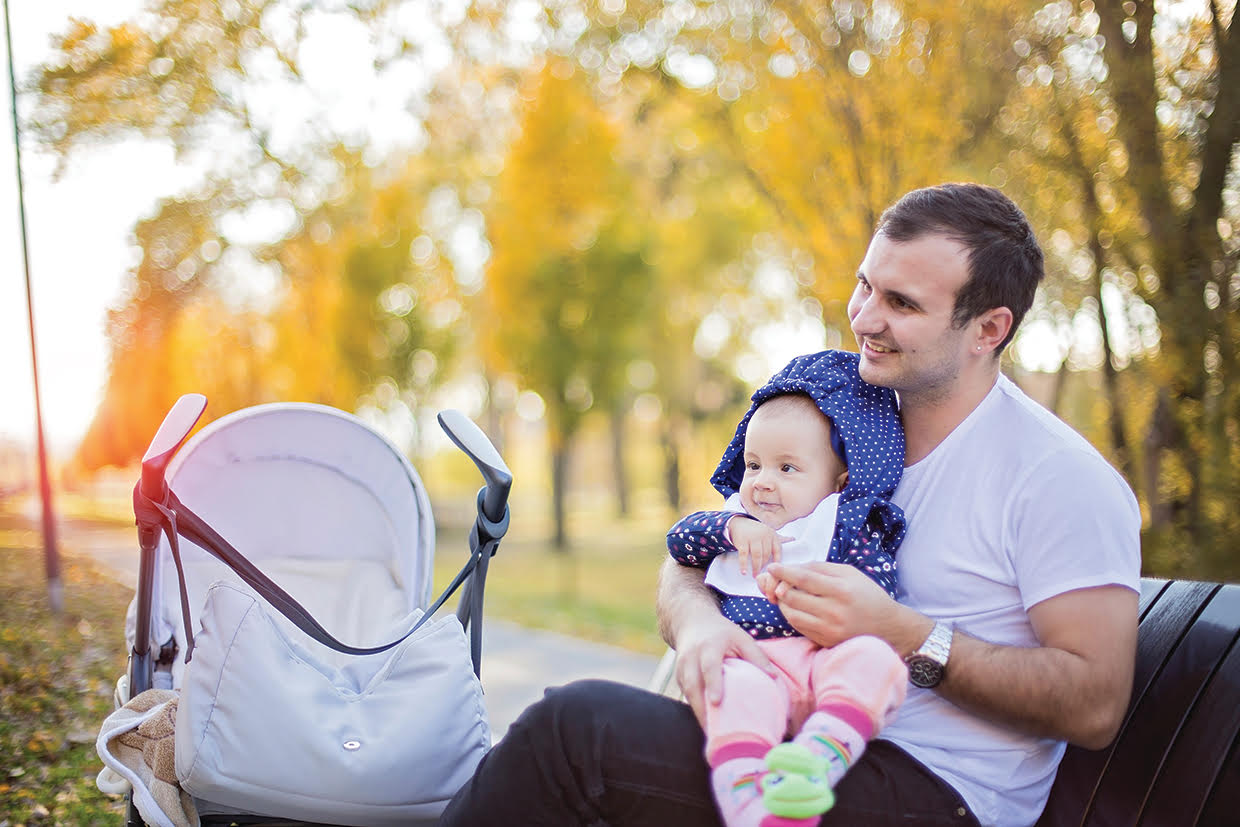
Ask DadPad, Health & Wellbeing, Mental Health
Ask DadPad: Why is movement good for my mental health?
Posted on 17th May 2024
This year’s Mental Health Awareness Week, organised by the Mental Health Foundation, has taken as its theme: “Movement: moving more for your mental health.”
The aim of this week is “to start a national conversation about the benefits of moving for mental health, but also about the barriers to movement.”
Helping new dads keep mentally healthy, especially during the challenging perinatal period, is something that we are always keen to do here at DadPad, and we’ve already written a number of blogs on a huge range aspects of parent and infant mental health, which you can find here.
Today, though, we wanted to provide some specific information and advice on ways in which – as a new dad – you can use movement and physical activity to support your mental health.
Why is it important to keep moving?
When the complete and utter exhaustion of new parenthood kicks in, the last thing you probably want to be advised to do is to get out of the house and go for a walk. So why should we listen to this advice?
According to the Mental Health Foundation’s MHAW Movement Report 2024:
There is… strong evidence to support the role of physical activity in the reduction of symptoms of depression and anxiety. Regular physical activity can reduce your risk of depression by up to 30%. In addition, numerous other mental health benefits of being active have been identified, including increased self-esteem, reduced stress, and improved quality of life.
In fact, the UK Chief Medical Officer’s Physical Activity Guidelines from 2019 even go as far as to state that:
If physical activity were a drug, we would refer to it as a miracle cure, due to the great many illnesses it can prevent and help treat.
Despite this, figures from the World Health Organisation (2022) indicate that, in the UK, “36% of adults (aged 18+) do not meet the physical activity recommendations set out by the World Health Organisation”, which includes doing at least 150-300 minutes of moderate intensity aerobic physical activity, or at least 75-150 minutes of vigorous-intensity aerobic physical activity each week.
[NB. Note that the suggested recommendations differ for different categories of adults, including people living with chronic conditions, such as type 2 diabetes, HIV and high blood pressure, and pregnant women or women who have recently given birth].

What’s stopping us?
We know that lack of sleep and coping with the seemingly relentless needs of a new baby will have a massive impact on new parents (we provided some tips for surviving the first 12 weeks with a newborn in this blog post from 2020). We also know that experiencing stress or anxiety is also quite common at this time in your lives – which we looked at in this blog from 2021.
Therefore, a lot of the reasons cited in the MHAW Movement Report as to why people in the UK aren’t doing as much activity as we should will resonate with new parents. For example:
- 28% say they are too tired/have low energy;
- 22% are too busy;
- 17% are put off by the stress that they’re experiencing in their everyday life; and
- 15% are experiencing anxiety.
Add to that existing feelings of low mood or depression, cultural or financial barriers, poor self-esteem or body image, and – of course! – the Great British weather (which was the most common reason given, at 31%, for not exercising), we will all have our reasons…

But I really can’t afford the time…
It can be really difficult to justify taking the time out of the house and away from supporting our partner in the post-birth period. There are lots of good reasons to try and do this, though – for the overall benefit of you, your partner and your baby.
As a new parent, we can often feel lost, and it can sometimes feel that we are no longer the person that we used to be. This change can add to our stress levels. It’s therefore a good idea to try and carve out some ‘me’ time, if you can, as a way of relieving that stress.
Clearly, as a new dad, working alongside baby’s mum during these challenging and exhausting (and exciting) first few weeks and months of baby’s life, finding time for ourselves is often difficult, if not impossible. It’s therefore a good idea to talk over your feelings with your partner (she might well be feeling the same as you) and looking to find solutions and compromises which would allow each of you an occasional slice of time for yourselves.
One simple idea for having some ‘me time’ which also incorporates physical activity is to go for a quick walk, which hopefully won’t feel like ‘too much’ but will get you out of the house – this in itself can be a huge boost to our mood in the early days of parenthood, when getting out of the bedroom, let alone the house, might feel insurmountable.
This activity – even just for a short time – will also help us to feel more tired at the end of the day (and hopefully boost the quality of our sleep), as well as leading to our brains releasing feel-good hormones, which boost our mood and give us more energy. We’ll also release cortisol into our blood stream, which aids our body’s ability to cope with stress.
Other activities/benefits that you could incorporate into this might include:
- popping in your earphones and listening to some of your favourite music, or an audiobook, or even one of the NHS free mental wellbeing audio guides;
- meeting up with a friend for a chat, perhaps catching up on news and gossip from your social circle, which will help remind you that your ‘old life’ is still there. Further, as noted by the Mental Health Foundation, these “social connections are also great for our mental health and wellbeing”;
- spending time in nature, which is a recognised way of boosting our mental health. The Mind website includes a quote from a person with bipolar disorder who notes that “getting out in nature and walking…helps to keep me calm and physically healthy… I love taking the time to be mindful of all the beautiful green spaces around me, even when living in a city. Watching the birds and squirrels always has a calming effect and takes me out of my own head“. On these occasions, you might want to ditch the earphones and instead focus on listening out for the calming sounds of nature. And, as noted by the Mental Health Foundation, even if “you live in the city, nature is often close by. Parks, gardens, nature reserves, forests, all provide opportunities for exercise, movement and meeting new people.”; or
- if you have older children, why not ask them to teach you their playground games and all play together? You can also teach them the games you used to play that may have fallen out of fashion… is hopscotch still a thing? This opportunity to spend time with them, having fun together, will also help build and sustain your attachment. Paternity leave might also mean that you have the chance to drop them to or pick them up from school – walking and talking together (even if it’s just from the school gates to the car) is another opportunity to get moving, talking and bonding.
And you could, of course, take baby out for a walk, maybe in their pram or in their sling. Not only will this give mum the opportunity for some time for herself at home (or the two of you could take the chance to walk, and talk, together), but it’ll also bring some benefits to baby, too. For example, in our tips on surviving the first 12 weeks with a newborn, the sleep experts that we spoke to explained some of the benefits in getting baby out for a little bit of fresh air each day:
Expose baby to natural lighting patterns – …“research shows babies develop better circadian rhythms if they spend more time outside” and …“taking your baby out for a good dose of afternoon light each day… has been shown to help establish young babies’ body clocks, and will help you sleep better, too.”

What can I do at home?
Of course, on some days, leaving the house might not be practical or possible. This doesn’t mean that you can’t still work some physical movement into your day. For example, here are some suggestions from the Mental Health Foundation:
- Find moments for movement throughout the day… such as when you’re waiting on something (e.g. the kettle to boil, the washing machine to finish, or baby to settle). You can use these times to get moving, perhaps by trying to march on the spot, do some stretches, or try some chair exercises; or
- If you are sitting for large periods of time during the day, set a timer to take regular breaks to stand up, walk around and stretch your body.
And, again, if you have older children, remember that getting the chance to ‘rough and tumble’ with them on the floor is not only great for bonding, but will also get you all moving, giggling and cuddling together.
Take it easy…
The Mental Health Foundation also advise that it’s best to start by setting yourself “small goals. It might be walking to the end of your street. Then you can push yourself a little further each day.”
And, according to research carried out by Asics back in 2022, “after just 15 minutes and 9 seconds of exercise, people start to feel a positive uplift.”
Where can I find out more?
A great place to start is – as always – the NHS website. Have a look at their ‘Exercise’ page for information on a whole range of topics, such as:
- the benefits of exercise;
- physical activity guidelines for different age groups;
- suggested exercises and activities – including sitting, balancing, strength and flexibility exercises; and
- advice on walking and running to improve your health – including a link to their Couch to 5K
And, of course, if you have any concerns or worries about starting up physical activity after a break, it’s always advisable to speak to your GP first.

Further reading and references:
Asics (2022) Running for Positive Mental Health. [online]
Mental Health Foundation (2024) MHAW Movement Report. [online]
Mental Health Foundation (2024) Boost your mental health by moving more. [online]
NHS [undated] Exercise. [online]
Rowland, Mark (2024) Let’s move more for our mental health. [online]
UK Chief Medical Officers’ Physical Activity Guidelines (2019) [online]
WHO (2022) Physical Activity Fact Sheet. [online]

